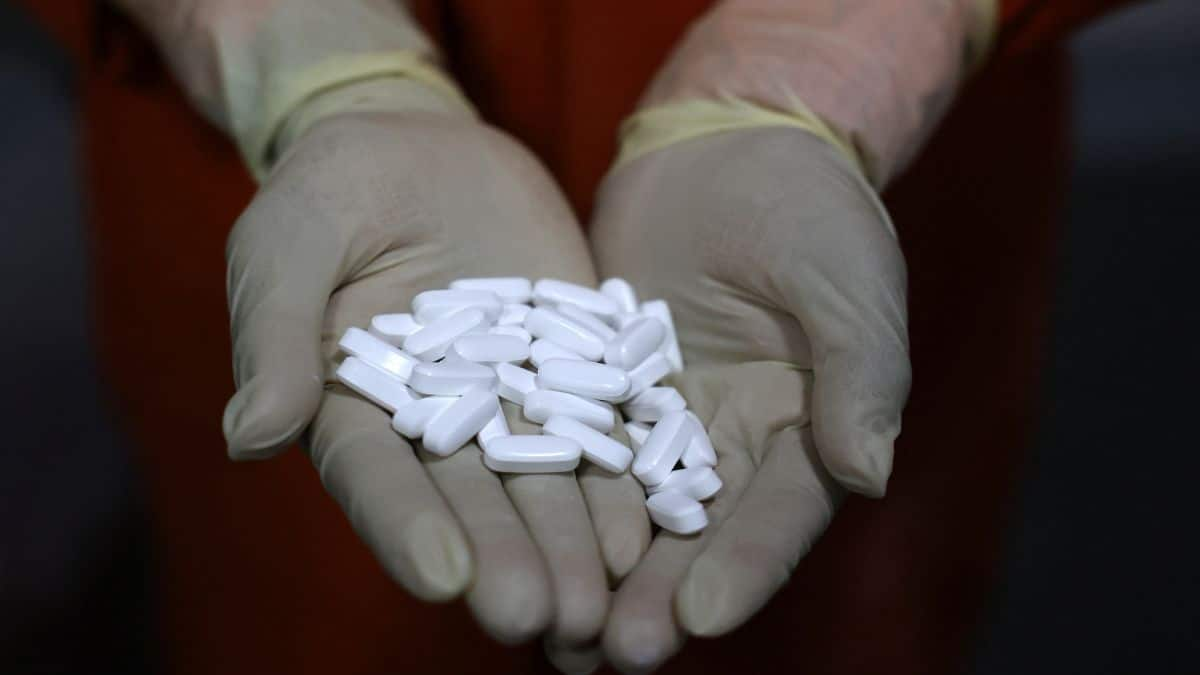**Trump’s Tariff War Continues: 100% Tariffs on Branded Pharmaceuticals Starting October 1**
US President Donald Trump has announced a new wave of tariffs, imposing a 100 percent tariff on imports of branded and patented pharmaceutical drugs effective October 1, next Wednesday. However, there is a caveat: such heavy tariffs will not apply if the drug company establishes manufacturing plants in the United States. This move is part of Trump’s ongoing tariff war and is likely to have significant implications for India, whose pharma sector heavily depends on the US market. Notably, the US is India’s largest drugs market.
—
### Trump’s Announcement on Pharma and More
On Thursday, September 25, President Trump revealed that brand-name or patented pharmaceutical products will face a 100 percent tariff starting October 1 unless the drug manufacturer is building production facilities in the US. While this move doesn’t come as a total surprise—Trump has been promising to impose tariffs on pharmaceutical imports throughout his term—this is the first time such a significant tariff has been announced on these products.
Trump views tariffs as a way to pressure pharmaceutical companies into ramping up domestic production and strengthening the supply chain for essential medicines. In his announcement on Truth Social, Trump wrote:
*”Starting October 1, 2025, we will be imposing a 100 percent tariff on any branded or patented pharmaceutical product, unless a company is building their pharmaceutical manufacturing plant in America.”*
He added, *”There will, therefore, be no tariff on these pharmaceutical products if construction has started.”*
In addition to pharmaceuticals, Trump also announced new tariffs on other imported goods. These include:
– 50% tariff on kitchen cabinets
– 30% tariff on upholstered furniture
– 25% tariff on heavy trucks
In a separate post, Trump specified that the 25 percent tariff on heavy trucks made outside the US aims to support domestic manufacturers such as Peterbilt, Kenworth, Freightliner, and Mack Trucks. He emphasized that these tariffs serve multiple purposes, primarily for national security.
—
### Possible Impact on India and Beyond
Following the announcement, Asian stock markets saw a decline, especially in the pharmaceutical sector. According to Reuters, pharmaceutical shares across Asia tumbled:
– Japan’s Topix pharmaceutical index dropped 1%
– Hong Kong’s innovative drug index slid 2.8%
– South Korean firm SK Biopharmaceuticals fell 2.7%
– Australian biotech company CSL was down 1.6% after earlier losses exceeding 3%
In India, there is a cautious mood as the country remains one of the largest suppliers of medicines to the US. India exported pharmaceutical products worth $17.7 billion (Rs 77,231 crore) to the US in 2024. Additionally, exports for the first half of this year reached $3.7 billion (Rs 32,505 crore).
India supplies over 45% of generic drugs and 15% of biosimilar drugs used in the US. Major pharmaceutical companies such as Dr. Reddy’s, Aurobindo Pharma, Zydus Lifesciences, Sun Pharma, and Gland Pharma reportedly generate 30-50% of their total revenues from the American market.
Furthermore, it is reported that Indian drugs saved the US healthcare system $219 billion in 2022 alone, with an estimated $1.3 trillion in savings expected over the next five years due to generics from India.
If a 100% tariff is imposed, it could lead to significant price hikes, inflation, and drug shortages in the US, where four out of every ten prescriptions filled are for these medicines.
However, experts note that Trump’s tariffs target branded and patented drugs only—not generic drugs, which constitute the bulk of India’s pharmaceutical exports. Despite this, uncertainty looms, and pharma executives are closely monitoring the evolving situation.
—
### Trump’s Ongoing Tariff Blitz
Tariffs on pharmaceuticals, previously opposed by the Pharmaceutical Research and Manufacturers of America (PhRMA), represent a continuation of Trump’s wider tariff campaign against America’s trading partners, including India.
The US has already imposed tariffs of varying rates on Indian goods, ranging from 50% tariffs on products like jewelry to garments. Trump firmly believes that tariffs are necessary to compel companies to invest in domestic manufacturing.
He has dismissed concerns that these tariffs will lead to higher costs for consumers and businesses, insisting instead:
*”We’re protecting American jobs, we’re protecting American factories. It’s very simple. If you want to sell here, you build here.”*
Critics, on the other hand, argue that Trump’s tariff strategy exacerbates inflation and creates obstacles for businesses. Despite this opposition, the president and his administration remain steadfast in their approach.
—
*With inputs from agencies.*
https://www.firstpost.com/explainers/trump-tariff-pharmaceuticals-india-drug-makers-explained-13937033.html

Be First to Comment